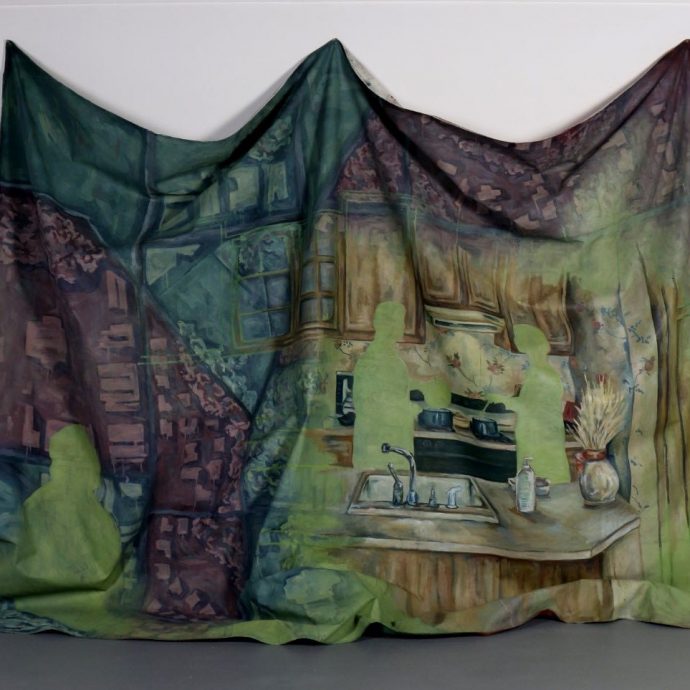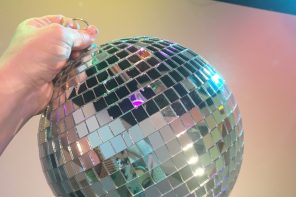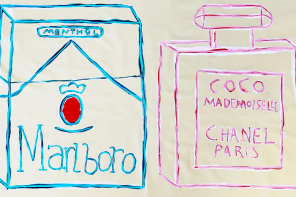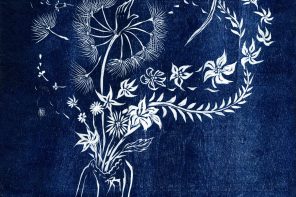The Old Lady and the House
Forty years ago, Lucy bought the land, split the lot,
built two houses, sold one, lived in the other.
Ten years ago, we moved in next door. For months
we only saw Paul, her husband, faithfully out for a smoke
on the front lawn, with Sue their playful grey Shih Tzu in tow.
“She loved the previous owners’ kids,”
was his welcoming remark, her poop across our lot.
Our son was one-year old, Paul
was about to enter his seventies, and Lucy,
a good few years older, was fitter,
more vigorous, but neither walked their Sue.
Paul watched the chronicles of the neighborhood,
a paradisiac Bantustan, our little city of god.
A year earlier Fatima and I visited San Miguel de Allende
to restore our minds in eco-friendly destinations.
She was five months pregnant.
We were living in an apartment complex
that a hurricane would also drench
after toppling its papier-mâché chimney.
In San Miguel, the Gringo-run B&B was a fairytale
Structure, out of the palaces in Sentra.
Half-owner, the local wife cooked us Christmas
dinner, denounced the natives who “like being poor,”
as her husband radiated his traumatized Californian youth
through a book’s help
that scored all religions
to a barometer of Zen.
Islam scored lowest.
Paul was a veteran
with an enlarged prostate.
His advice was that I should “watch out for them”
who blow my live oak leaves, they’re bound
by law to dispose of the waste
“free of charge,” leave none
of it in black plastic bags on my curb, an eyesore
for other residents. A month later, I asked Jesus
(leader of the landscapers who’d come
to the US during the Zapatista Revolution)
to trim the live oak branches
including those that straddled the corners of the two backyards,
and Jesus remonstrated
that as dogs and fire hydrants are as good
as apple pie, he wouldn’t cut a single branch
that covered a parallax
of that man’s yard. “Your neighbor, he’s,
how you say it,” as Jesus stuttered
a rhyme with a cystic illness
attributed to Ra, the ancient sun god.
I corrected Jesus’s pronunciation.
Paul’s health began to change. Lumbago
herniated his golf swing.
He quit smoking. The body
that nicotine infused turned diffuse.
His abdomen grew rotund.
He contracted diabetes.
Soon there was no more small talk,
no navy stories. I’d find Paul outside,
his shoulders closed toward a street
I couldn’t call him back from.
Dementia and hospitalization
started their record of his life.
Lucy struggled with the decision to put him away
in a nursing home. “I remarried a younger man
so that he’d take care of me when I’m older,”
she said woefully to me, “and I hate fat people,”
she added with a shiver as she bearhugged herself.
Thin throughout her life,
and always in proper robe on the grass,
and if intercepted in greeting, she’d quickly apologize
for her hair and the Texas sky,
though I’d never seen her or Paul
out to Church on Sunday.
Paul was now well cushioned
into his dying. When he stopped
recognizing her, she stopped visiting him.
I began to see her daily, watering
her yard and plants, mowing her grass, a sloth
born a bee in a solo hive.
One day she knocked at my door,
her voice trembling, and I let her in.
She said her landline was out of commission,
that she’d just been released
from the hospital for hypertension, a minor
stroke, a fibrillation.
I plugged her phone back into the wall.
I thought her end was near. Our niceties atrophied.
She was the tea-drop-stained
figure in a photo. She no longer heard my car
come up the driveway, my doors slam
open and shut, my half-hearted hellos.
That was five years ago. And yet
when she and I had hardly exchanged a word,
whenever she’d run into my mom outside our front door,
Lucy, unprompted, would praise me. A testament
to her classy decorum, thoughtful
of another mother’s heart.
Then rain fell biblical, anthropogenic.
And all the houses on our street flooded,
left us hydrophobic of a swollen sky.
When water receded,
everyone on the street walked out to talk
with each other, nouveaux ions in calamity’s bonds.
Lucy’s son
came to her rescue
and cut to the chase:
a woman of 90 can’t live
in a house under repair
unassisted. The property
would be sold. But his mother
wouldn’t sanction the sale,
and a few months later moved back in.
During remodeling, amid the rubble
that lined her front lawn and engulfed the white crape
myrtle that stood on the border zone between us,
a burgundy leather shoe
bulged like a boat.
It was Paul’s right edematous foot.
For two months it stayed there waiting
for the city’s waste management services.
Twice I stood by the heap
looking for the left shoe,
and what would I have done
with it had I found it?
Lucy is still living
in her house
and will die there.




